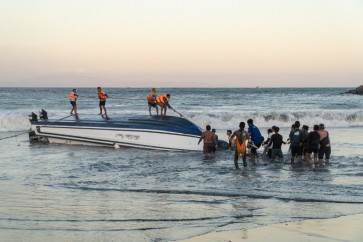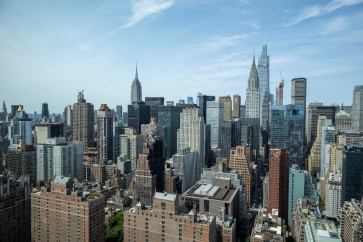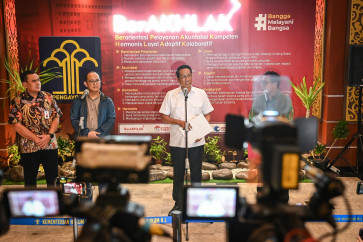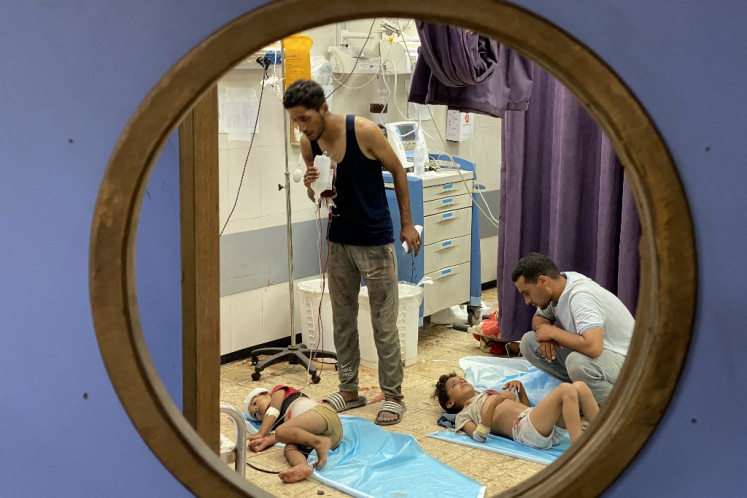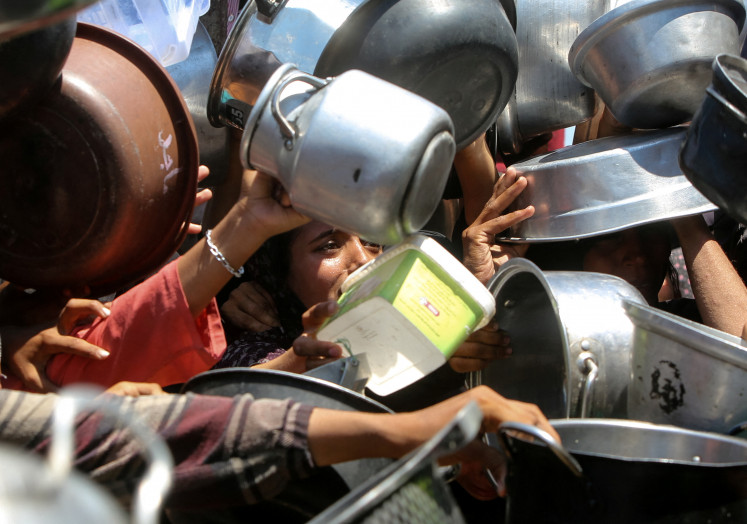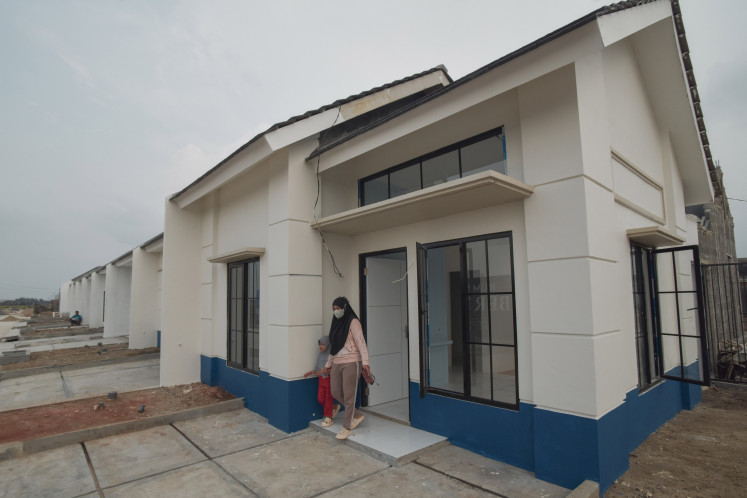Popular Reads
Top Results
Can't find what you're looking for?
View all search resultsPopular Reads
Top Results
Can't find what you're looking for?
View all search resultsIssues of the day: The surprising beauty of Arab democracy
Aug
Change text size
Gift Premium Articles
to Anyone
A
ug. 31, p. 4
If democracy is about surprises, it is easy to see what connects the Middle East and Indonesia. In both places, the arrival of democracy has resulted in elections that have sprung surprises.
A case in point is the free elections in Egypt and Libya, two countries chosen here because they illustrate the principle of surprise most dramatically.
The victory of the Muslim Brotherhood in Egypt raised fears that the Arab Spring had unleashed a wave of fundamentalism across the region.
But the victory of liberals in Libya quickly dashed those fears.
In Egypt, the success of the Muslim Brotherhood candidate Mohamed Mursi in the presidential election revealed the entrenched influence of religious forces which had legitimized themselves by taking the democratic route to power. (By Rachmat Gobel, Jakarta)
Your comments:
It is true that Pancasila is rooted in pluralism and consensus and that is why Indonesia, in abiding to its principles, should reject any attempt to mix religion with politics.
In a democratic context, religious belief is a choice of personal identity and a privilege.
Indonesia, having been a voice for moderate Islam for a long time, has the credibility and necessary basis to show the world how Islam should evolve. To do so may involve going against some traditions but Islam badly needs to reconcile itself with the needs of modern times and democratic ideals.
Indra
I guess the writer has conveniently forgotten the immense chaos that the Arab Spring and Indonesian New Order brought to minorities. In the case of Indonesia, Islamic radicals used democracy as an excuse to entrench their people in our government without any sort of pretense and allow religious killings, property destruction, militant radical training camps.
Anyone from radical Islamic groups is given a light or no sentence, but if a minority defends himself, they are prosecuted to the fullest of the “law”.
Rampant corruption, incompetent statesmen and government officials, have replaced a once booming infrastructure expansion. But its okay right?
The people who couldn’t make money in the past are free to get what’s “due” to them.
I fear its going to get a lot worse before we are forced to find a solution that makes it marginally better.
Deddy K
Rachmat Gobel writes: “The point that Egypt and Libya make is that that genuine democracy is an open-ended process whose results cannot be predicted.”
This maybe true in the short term, but for the long term the author of the article gives the answer too: “The final destination is not democracy but the establishment of a religion-based society driven by religious law.”
It was the case in Iran, in Saudi Arabia, Sudan, Yemen, Palestine, and it’s tragically unfolding in Turkey, Somalia, Northern Nigeria, Zanzibar, Maldives, Pakistan, Iraq, and now in Egypt, Algeria, Mauritania, Mali, and soon in Indonesia, Bangladesh, Tunisia and Libya.
As the prime minister of Turkey, Erdogan, accurately said in 1997: “Democracy is only the train on which we ascend until we reach the goal. The mosques are our barracks, the minarets our bayonets, the domes our helmets and the believers our soldiers.”
Democracy is not blooming in the Arab Spring, it is a gigantic Fata Morgana.
Edo E


